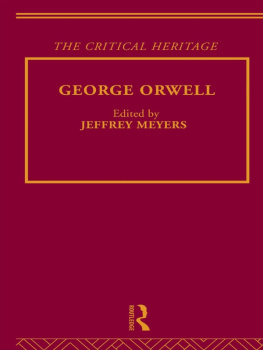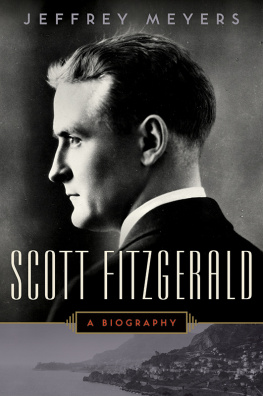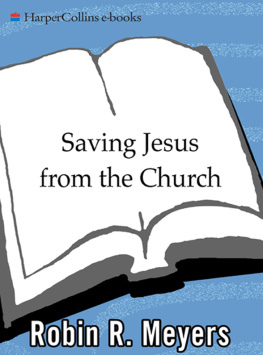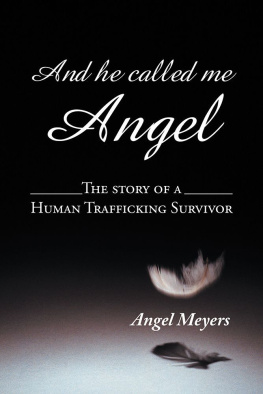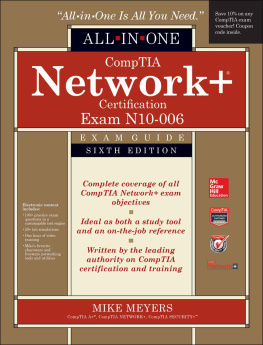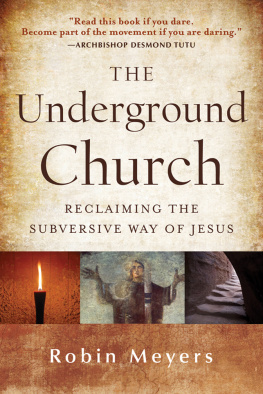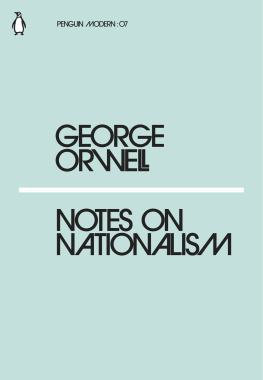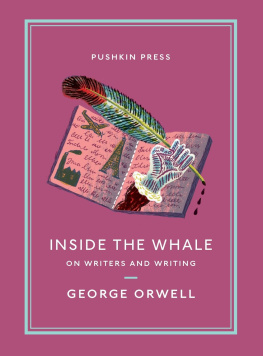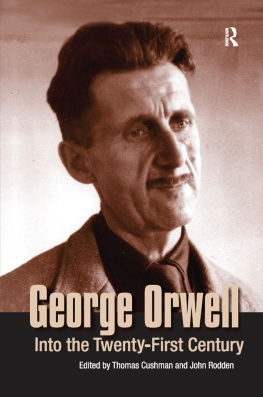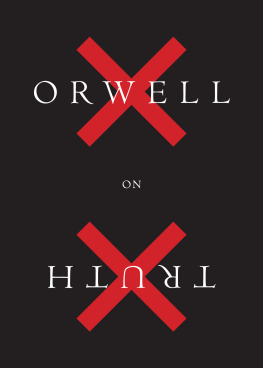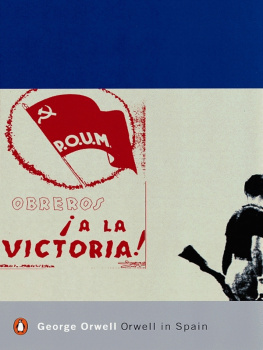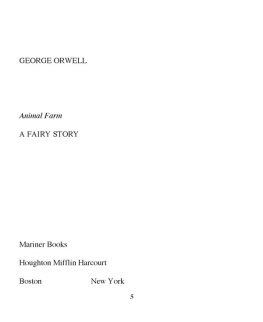Meyers - George Orwell
Here you can read online Meyers - George Orwell full text of the book (entire story) in english for free. Download pdf and epub, get meaning, cover and reviews about this ebook. year: 2011, publisher: Routledge, genre: Politics. Description of the work, (preface) as well as reviews are available. Best literature library LitArk.com created for fans of good reading and offers a wide selection of genres:
Romance novel
Science fiction
Adventure
Detective
Science
History
Home and family
Prose
Art
Politics
Computer
Non-fiction
Religion
Business
Children
Humor
Choose a favorite category and find really read worthwhile books. Enjoy immersion in the world of imagination, feel the emotions of the characters or learn something new for yourself, make an fascinating discovery.
George Orwell: summary, description and annotation
We offer to read an annotation, description, summary or preface (depends on what the author of the book "George Orwell" wrote himself). If you haven't found the necessary information about the book — write in the comments, we will try to find it.
George Orwell — read online for free the complete book (whole text) full work
Below is the text of the book, divided by pages. System saving the place of the last page read, allows you to conveniently read the book "George Orwell" online for free, without having to search again every time where you left off. Put a bookmark, and you can go to the page where you finished reading at any time.
Font size:
Interval:
Bookmark:

THE CRITICAL HERITAGE SERIES
General Editor: B.C.Southam
The Critical Heritage series collects together a large body of criticism on major figures in literature. Each volume presents the contemporary responses to a particular writer, enabling the student to follow the formation of critical attitudes to the writers work and its place within a literary tradition.
The carefully selected sources range from landmark essays in the history of criticism to fragments of contemporary opinion and little published documentary material, such as letters and diaries.
Significant pieces of criticism from later periods are also included in order to demonstrate fluctuations in reputation following the writers death.
First published in 1975
Reprinted in 1997 by Routledge
This edition published in the Taylor & Francis e-Library, 2002.
11 New Fetter Lane
London EC4P 4EE
&
29 West 35th Street
New York, NY 10001
Compilation, introduction, notes and index 1975 Jeffrey Meyers
All rights reserved. No part of this book may be reprinted or reproduced or utilized in any form or by any electronic, mechanical, or other means, now known or hereafter invented, including photocopying and recording or in any information storage or retrieval system, without permission in writing from the publishers.
British Library Cataloguing in Publication Data
ISBN 0-415-15923-7 (Print Edition)
ISBN 0-203-19635-X Master e-book ISBN
ISBN 0-203-19638-4 (Glassbook Format)
For
Alfredo and Barbara
The reception given to a writer by his contemporaries and near- contemporaries is evidence of considerable value to the student of literature. On one side we learn a great deal about the state of criticism at large and in particular about the development of critical attitudes towards a single writer; at the same time, through private comments in letters, journals or marginalia, we gain an insight upon the tastes and literary thought of individual readers of the period. Evidence of this kind helps us to understand the writers historical situation, the nature of his immediate reading-public, and his response to these pressures.
The separate volumes in the Critical Heritage Series present a record of this early criticism. Clearly, for many of the highly productive and lengthily reviewed nineteenth- and twentieth-century writers, there exists an enormous body of material; and in these cases the volume editors have made a selection of the most important views, significant for their intrinsic critical worth or for their representative qualityperhaps even registering incomprehension!
For earlier writers, notably pre-eighteenth century, the materials are much scarcer and the historical period has been extended, sometimes far beyond the writers lifetime, in order to show the inception and growth of critical views which were initially slow to appear.
In each volume the documents are headed by an Introduction, discussing the material assembled and relating the early stages of the authors reception to what we have come to identify as the critical tradition. The volumes will make available much material which would otherwise be difficult of access and it is hoped that the modern reader will be thereby helped towards an informed understanding of the ways in which literature has been read and judged.
B.C.S.
The editor and publishers wish to thank the following for their permission to reprint copyright material for the extracts quoted:
Edward Arnold Ltd and Listener for No. 92; Atlantic Monthly for No. 53 (copyright 1950, by the Atlantic Monthly Company, Boston, Mass.) ; Georges Borchardt, Inc., Hudson Review and Random House for No. 102 (copyright 1957 George P.Elliott. First published in Hudson Review); Georges Borchardt, Inc., and New Yorker for No. 107; Canadian Forum for No. 67; Commonweal for Nos 16, 23 and 49; the late Cyril Connolly for No. 64, and New Statesman for No. 18; Contemporary Review for Nos 10 and 31; Current Digest of the Soviet Press for No. 85 (translation copyright 1950 by Current Digest of the Soviet Press) ; Editions Gallimard for No. 1; Evening Standard for No. 62; Farrar, Straus & Giroux and New Yorker for Nos 66, 73 and 95; Victor Gollancz Ltd for No. 27; Guardian for No. 39; David Higham Associates, Daily Telegraph and Esquire for Nos 103 ( Anthony Powell, 1968) and 106 ( 1969 by Esquire, Inc., first published in Esquire) ; Irving Howe and Harpers for No. 105 (copyright 1969 by Harpers Magazine) ; Hudson Review for No. 26; Hutchinson Publishing Group Ltd and St Martins Press, Inc. for No. 77; Mrs Q.D. Leavis for No. 60; Golo Mann and Frankfurter Rundschau for No. 84; William Morris Agency and New Yorker for No. 22; Malcolm Muggeridge for No. II; Nation for Nos 5, 33, 44, 50, 65, 72 and 80; New Leader (New York) for Nos 42 and 81; New Republic for Nos. 6, 43, 52, 70, 94 and 97; New Statesman for Nos 4, 32 and 63; Conor Cruise OBrien and Listener for No. 104; Observer for Nos 12, 79, 90 and 99; Partisan Review for Nos 61 and 75; A.D.Peters & Co. for Nos 3, 20 and 41; Philological Quarterly for No. 108; Henry Popkin for No. 100; V.S.Pritchett and New Statesman for No. 89; Peter Quennell and New Statesman for No. 14; Herbert Read Discretionary Trust for No. 86; Estate of Philip Rahv and Partisan Review for No. 82; Bertrand Russell Estate for No. 91; Mrs Vasiliki Sarant, Commentary and Partisan Review for Nos 25 and 54; Saturday Review for Nos 51 and 71; Secker & Warburg Ltd for No. 87; Society of Authors as literary representatives of the Estate of John Middleton Murry for No. 74; Spectator for Nos 8, 13, 17 and 68; Tablet for Nos 40 and 69; Hugh Thomas and New Statesman for No. 45; Time and Tide for Nos 29, 36, 47, 55 and 96; The Times Literary Supplement for Nos 2, 9, 19, 35, 46, 57, 78 and 98; Philip Toynbee and Encounter for No. 34; Tribune for Nos 7, 28, 48 and 93; John Wain and Twentieth Century for No. 101; George Woodcock for No. 76; Yale Review for No. 24 (copyright Yale University Press).
It has proved difficult in certain cases to locate the proprietors of copyright material. However, all possible care has been taken to trace ownership of the selections included and to make full acknowledgment for their use.
Before he published his first book at the age of thirty, Orwells experience ranged from Eton to service in the colonial police, and from short periods as a tramp, dishwasher, hop-picker, tutor and teacher to book reviewer and pseudo-Georgian poet. And during the next twelve years he worked as a book dealer, farmer, shopkeeper, film critic, broadcaster, editor, columnist and war correspondent to supplement his meager income as an author. Orwell deliberately sought out experience to provide material for his writing, and everything he produced is related to the events of his life. His acute eye for detail and passionate desire to inform others of the human and political reality he had discovered made him pre-eminent as a reporter, essayist and satirist rather than as a novelist.
Because his books were critical of society and of governments, of received opinion on the Right and on the Left, they often inspired controversy and were difficult to publish.
Font size:
Interval:
Bookmark:
Similar books «George Orwell»
Look at similar books to George Orwell. We have selected literature similar in name and meaning in the hope of providing readers with more options to find new, interesting, not yet read works.
Discussion, reviews of the book George Orwell and just readers' own opinions. Leave your comments, write what you think about the work, its meaning or the main characters. Specify what exactly you liked and what you didn't like, and why you think so.

